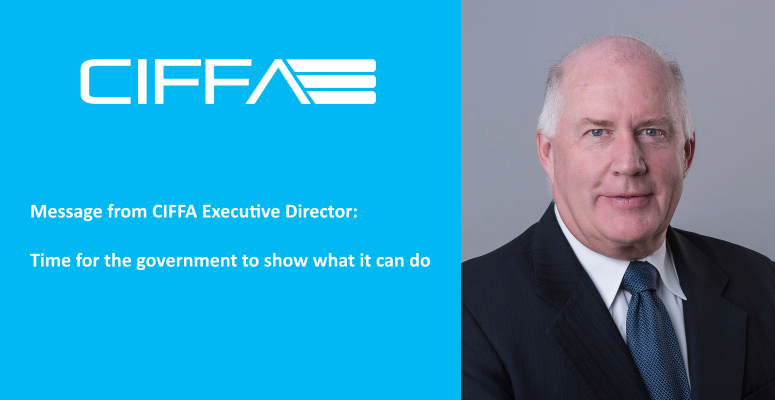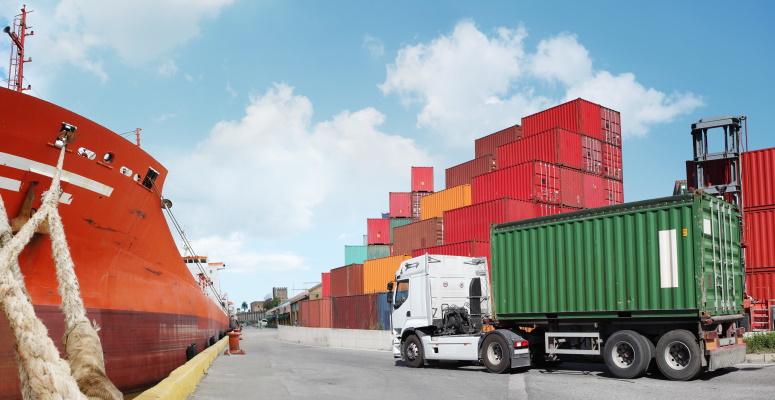
CIFFA Advocacy Update
From the CIFFA Secretariat office, the latest in our advocacy work:
Release of Commercial Goods regs, CIFFA’s request for changes
In the fall of 2022 CIFFA initiated a request to the CBSA to implement a change to the Release of Commercial Goods regulations, which CIFFA felt would improve fluidity and increase efficiencies for the movement of containers to an inland rail terminal.
In its letter dated September 19, 2022, CIFFA requested changes to the Release of Commercial Goods documentation, in particular, relating to the Timeframes for the Release of Goods and limited specifically for cargo arriving via vessel at a Canadian seaport for movement to an inland Rail terminal for customs clearance purposes. In a January 12, 2023 response, the CBSA indicated that reverting to the old timeframes would reintroduce inconsistency and would create situations where carriers would be unable to meet their obligation under Section 12(1) if the CBSA systems automatically triggered release at 12:01. CIFFA’s position remains consistent, that there are opportunities in which to improve the clearance process and increase fluidity, without jeopardizing carrier obligations. We will work with relevant stakeholders in which to the reposition this matter in the interests of supply chain efficiencies.
- In November 2022, CIFFA brought forward its concerns to the Commissioner of Competition regarding costs imposed to its members. The role of the Competition Bureau (“Bureau”), as an independent law enforcement agency, is to ensure that Canadian businesses and consumers prosper in a competitive and innovative marketplace. In its response, the Bureau indicated that “While charging high prices is not in itself an offence under the Competition Act (“Act”), the Bureau will scrutinize any evidence that companies or individuals have violated Canada’s competition laws. Where there is evidence that prices have been affected by anti-competitive conduct, the Bureau will not hesitate to take appropriate action to protect Canadians.”
Pre-Budget consultation brief
The federal government, ahead of Budget 2023, has asked to hear ideas about how to help Canadians succeed “while building stronger, greener, more competitive, more innovative, and more inclusive Canadian economy.” In January 2023, CIFFA submitted its pre-budget brief, noting that supply chain problems are far from being resolved, and they constitute an ongoing financial drain on the Canadian economy. “Although we commend the Minister and Department of Transport for the Supply Chain Task force report, it’s essential that the recommendations they’ve endorsed become part of the government’s budget priorities. “
The uncertainty of supply chains impacts the economy at myriad levels- undercutting investor confidence, limiting business growth, and preventing Canadians from capitalizing on market opportunities. This should be one of the highest priority files of a national government. Two factors are critical to an efficient, competitive transportation system: a skilled workforce and excellent infrastructure.
CIFFA’s Commentary on the 2023 Federal Budget:
Budget 2023 does respond to a number of urgent demands made by CIFFA through the past year; it’s obvious our voice was heard. A couple of gratifying examples: Our testimony in Parliamentary committees focused on the lack of a national strategy to guide the considerable amount of money pledged for transport and trade infrastructure and we are delighted to see a commitment in this budget to “Establishing a National Supply Chain Strategy with strategic trade corridor investments.”
We also protested vigorously the continued exemption from competition laws which is enjoyed by ocean shipping cartels. In meetings and submissions to Transport Canada and the Competition Bureau, as well as myriad Members of Parliament, we identified this situation as contributing to the abuse of Canadian shippers we’ve witnessed in recent years and again we see a response in Ottawa: the budget announced a promise to launch a “review” of the Shipping Conferences Exemption Act to improve marine shipping competition.” We will be monitoring this pledge closely.
Perhaps impressed with the US President’s State of the Union speech last month, the federal government threw a bone to consumers which included one of our favourite issues: “Budget 2023 announces the government’s intention to work with regulatory agencies, provinces, and territories to reduce junk fees for Canadians. This could include higher telecom roaming charges, event and concert fees, excessive baggage fees, and unjustified shipping and freight fees.”
We noted also that the recommendations of the National Supply Chain Task Force are referenced in the budget, although only generally. (We have urged the opposition politicians to hold the govt’s feet to the fire and actually implement some measures.)
The one specific recommendation that is referenced is the plan to create a Transportation Supply Chain Office to coordinate federal efforts, especially in a crisis. We remain unconvinced this will have a significant impact, but we’ll engage with it as soon as we can and offer CIFFA’s support to their efforts.
The budget certainly says more about supply chain issues and infrastructure than we have ever seen before from this government.
“Canadians expect and deserve a transportation and supply chain system that reliably delivers goods and people to our cities and towns, provides businesses with access to global markets, and safely and efficiently connects our communities. Our economy depends on it, too.”
“Canada’s trade corridors keep our economy moving. From ports, to airports, to railways and highways, they are the backbone of the supply chains that bring goods to our communities and enable our businesses to export their products around the world.”
- In March of 2023 CIFFA held a meeting attended by Conservative Shadow Minister Mark Strahl. CIFFA asked to be included on the witness list when the TRANS Committee begins deliberations on Bill C33, Strengthening the Port System and Railway Safety in Canada Act.
CIFFA will be looking to comment on changes to Transportation of Dangerous Goods Act, The Customs Act, Transportation Security Clearances and the Canada Transportation Act and associated regulations. CIFFA is also supportive of the repeal of the Canada Shipping Conferences Exemption Act. There is a direct relationship between the cost of doing business in Canada and the abuse of dominance of shipping conferences. The Government recently undertook a review of the Competition Act where the CIFFA raised this issue. The CIFFA submits that repealing the Shipping Conference Exemption Act would bring positive relief to consumer prices as a companion to reduced taxes.



